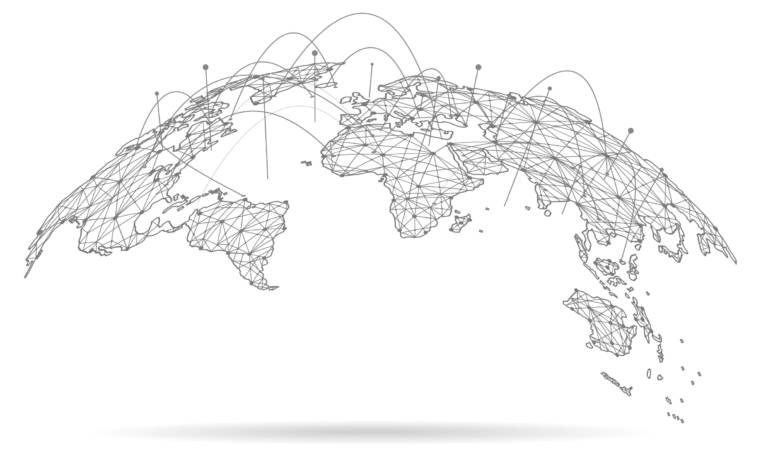The Role of Letters Rogatory in International Legislation: Secret Insights
Letters rogatory serve as a pivotal tool in international regulation, assisting in cross-border legal aid by permitting jurisdictions to formally ask for evidence and activities from one another. What effects might these difficulties have for future lawful procedures?
Interpretation of Letters Rogatory
In the realm of global law, letters rogatory work as formal demands issued by a court in one jurisdiction to look for support from a court in an additional jurisdiction. Letters rogatory. These demands are particularly considerable in cross-border lawful proceedings, where the enforcement of a court's order or the event of evidence may be restrained due to administrative constraints

The procedure typically requires the asking for court to verbalize the particular information or activity needed from the international court, sticking to the legal methods and conventions developed between the territories included. When issued, the letters rogatory are sent with diplomatic networks, which may consist of consular offices or embassies, to ensure that the demand is acknowledged and acted on by the foreign court. On the whole, letters rogatory exemplify the cooperative structure vital for effective global legal processes.
Historic Context
Although the practice of letters rogatory has old roots, its formalization within the structure of international legislation emerged dramatically in the 20th century. Historically, such ask for judicial support were made use of in various legal practices, including Roman legislation, where they facilitated cross-border teamwork in lawful matters. The principle acquired restored interest with the rise of globalization and the boosting intricacy of international legal communications.
The mid-20th century saw the facility of treaties and conventions that sought to systematize the process of letters rogatory. Significantly, the 1970 Hague Convention on the Taking of Evidence Abroad in Industrial or civil Matters gave an organized method, improving the efficiency of these requests - Letters rogatory. This period marked a change from informal arrangements to an extra methodical structure, which resolved the challenges positioned by differing nationwide lawful systems
As states came to be more interdependent, the requirement for efficient systems to collect proof throughout boundaries came to be apparent, reinforcing the role of letters rogatory in assisting in worldwide teamwork. Today, they continue to be a crucial instrument for obtaining evidence and guaranteeing that justice transcends national boundaries, reflecting the evolving nature of international law in response to global obstacles.
Refine of Issuing Demands
The procedure of releasing letters rogatory commonly entails numerous essential actions made to ensure that requests for judicial assistance are clear, specific, and certified with both worldwide and domestic legal criteria. Originally, a celebration seeking assistance must prepare an official demand that describes the important truths of the case, the alleviation looked for, and the particular evidence or testament needed. This document has to be crafted with accuracy to meet the lawful requirements of the territory in which it will be sent.
Complying with the preparation of the demand, it is submitted to the appropriate authority, commonly a court or an assigned governmental firm. This authority evaluates the request to guarantee it abides by legal requirements and procedural norms. As soon as authorized, the demand is transferred to the international jurisdiction with diplomatic channels.
Upon invoice, the foreign court reviews the request's conformity with its local legislations and techniques (Letters rogatory). If accepted, it continues to execute the request, which might involve the issuance of subpoenas or the collection of proof. Throughout this process, preserving clear interaction between the requesting and obtaining territories is important to ensure successful participation and the fulfillment of the request
Obstacles and Limitations
Challenges and limitations frequently moved here occur in the procedure of implementing letters rogatory, frequently coming from varying lawful systems and procedures between jurisdictions. One considerable barrier is the differing criteria of admissibility for evidence, which can result in problems in the approval of documents asked for via letters rogatory. Additionally, the lack of uniformity in legal terminology and definitions can create misunderstandings, complicating communication between courts in different countries.
Additionally, hold-ups are typical as a result of governmental procedures, as the demand might require to pass via numerous layers of lawful authorities prior to it is satisfied. In some circumstances, the requested jurisdiction may lack the necessary resources or willingness to cooperate, further hindering the procedure. Language obstacles likewise contribute to difficulties, as accurate translation of legal records is crucial for ensuring that the desired message is shared without distortion.
Finally, sovereignty worries may arise, as some states are reluctant to abide with demands that they view as infringing upon their legal autonomy. These obstacles highlight the intricacies fundamental in the use of letters rogatory, demanding higher harmonization and collaboration amongst worldwide legal his comment is here systems to boost their performance.

Effect on International Teamwork
Recognizing the significance of letters rogatory in cultivating global teamwork is important, as these demands facilitate cross-border legal help and advertise joint initiatives in civil and criminal matters. By enabling one jurisdiction to formally request support from one more, letters rogatory produce a structured legal framework that improves the effectiveness of worldwide communication between judicial authorities.
The use of letters rogatory assists to establish mutual count on and respect among countries, which is essential in an increasingly interconnected world. They offer as special info a device not just for collecting proof however likewise for guaranteeing that legal processes are promoted throughout boundaries. This is especially essential in combating transnational crime, where the lack of ability to safeguard participation can weaken justice.
Additionally, the reliance on letters rogatory can streamline intricate lawful procedures, reducing hold-ups and unpredictabilities in worldwide investigations. The step-by-step safeguards intrinsic in this process contribute to the defense of private rights while facilitating participation among states. Ultimately, the influence of letters rogatory on worldwide cooperation emphasizes their function as vital devices in the promotion of justice, fostering a joint spirit that transcends legal systems and nationwide limits.
Conclusion
In conclusion, letters rogatory serve as a crucial tool in international legislation, assisting in cross-border lawful assistance and collaboration. The ongoing advancement of these devices is essential for improving the efficiency of global lawful procedures, ultimately fostering stronger collaboration in both civil and criminal matters across territories.
Letters rogatory serve as a pivotal instrument in international legislation, promoting cross-border lawful assistance by allowing territories to formally request evidence and actions from one another.The process generally requires the requesting court to articulate the specific information or action needed from the international court, sticking to the lawful methods and conventions developed in between the jurisdictions included. Historically, such requests for judicial assistance were utilized in various lawful practices, consisting of Roman legislation, where they assisted in cross-border teamwork in legal matters.The procedure of releasing letters rogatory commonly entails a number of vital steps designed to ensure that demands for judicial help are clear, certain, and compliant with both worldwide and domestic lawful requirements.Furthermore, delays are usual due to administrative processes, as the demand might need to pass via several layers of legal authorities prior to it is satisfied.
Comments on “Understanding the Importance of Letters Rogatory in International Law”